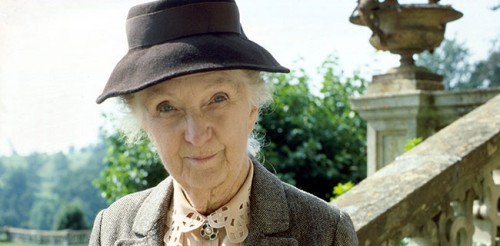Posted by Lyra Mollington
Apart from a brief encounter with cancer when I was in my forties and a slightly dodgy back, I am in good health for a 74 year old. Neverthless I was perturbed to discover that I am only six months older than Jane Fonda. However, as my mother used to say, it’s not what’s on the outside that counts… She also used to advise me to study hard because I was unlikely to bag myself a rich husband or indeed any husband at all. How wrong she was!
This morning I awoke (always a good start to the day) to the dulcet tones of James Naughtie and a nice cup of tea made by Mr M. By the time I was in the kitchen preparing Colin’s breakfast, it was Thought for the Day. Have you noticed how they cleverly begin with something topical and then, before you know it, they’re talking about Jesus?
On Tuesday I was especially interested to hear Canon Angela Tilby telling us about death. I don’t know how I missed it, but apparently it’s Dying Matters Awareness Week. She was just getting to her point – how to talk meaningfully about something we don’t really understand – when Colin started barking at one of the cats who occasionally risk life and limb by straying into our back garden. Frustratingly, I heard only the words scepticism, brutal and metaphor which made me even more desperate to know how it ended.
Later that day, when my grandson Sebastian popped in after work, I asked him to show me how to find Angela’s podcast. I could have done it myself of course but I like him to think that I rely on his expertise. Which, come to think of it, is how I bagged the husband my mother said I would never get.
With Colin safely curled up in his bed, Mr M. preparing supper and Seb surfing the web, I listened again to Tuesday’s Thought for the Day.
As Canon Angela concluded with the words, ‘Death, though a change of state, is not the end of being,’ I noticed Seb rolling his eyes. I was perplexed – Angela had spoken so movingly about how she helps people come to terms with death through the language of faith. As a family I would say we are all at the agnostic end of the Anglican spectrum. However, I’m beginning to think that Seb might be one of those aggressive atheists one hears so much about.
He asked me if I had ever seen a ‘brilliant and funny’ website called Platitude of the Day. I told him that I might take a look if I had some spare time.
I have to confess that the moment Seb left, I clicked on the link. I am afraid that Mr Peter Hearty (the author of Platitude of the Day) had deliberately misinterpreted Angela’s wise words. Indeed, I was taken aback to discover that he does this to all the contributors of Thought for the Day. However, to my great shame, after reading his archives, I was addicted.
Where Angela speaks of how we soften the language of death by the use of metaphor, Mr Hearty writes, ‘You would think that people… would be more candid when one of your loved ones dies, and say things like, “Well that’s the end of your husband that you’ve been married to for the last 50 years. He’s gone, dead, kaputt, finito, so you just better get used to it.” Oddly, they don’t. They tend to try and soften the blow, even though they don’t believe in the invisible magic afterlife.’
He then gives her a rating of 5 out of 5 – extraordinarily platitudinous.
Angela and Peter are both sincere in their beliefs. I am grateful to both of them for giving me so much to think about in this week of Dying Matters Awareness. I am also grateful to Seb for finding me this article and video about Ms Fonda’s plastic surgery — here.

